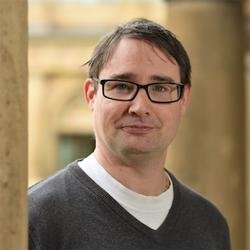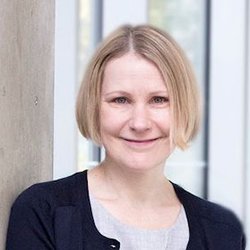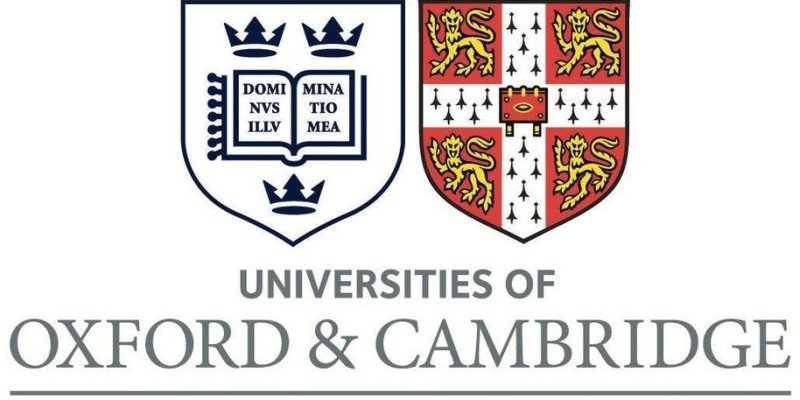
Thursday, April 18, 2024, 6.00pm to 8.00pm PDT
Cambridge in America (CAm) invites you to Artificial Intelligence for Social Good on Thursday, April 18th.
Join us for a conversation with Professors Per Ola Kristensson and Anna Korhonen about AI with a focus on positive social impact.
As AI methods are becoming increasingly accessible, a key question is how to use such technologies to allow users to achieve their goals effectively, efficiently, and safely. This talk will explain how a systems view of human-AI design enables the creation of systems that both support users and allow us to reimagine how we work with machines. Examples will include systems that allow users to type with their eyes and use virtual tools through augmented reality glasses.
We look forward to seeing you!

Per Ola Kristensson is a Professor of Interactive Systems Engineering in the Department of Engineering at the University of Cambridge and a Fellow of Trinity College, Cambridge. He is a co-founder and co-director of the Centre for Human-Inspired Artificial Intelligence at the University of Cambridge. He is interested in designing intelligent interactive systems that enable people to be more creative, expressive and satisfied in their daily lives. His PhD thesis was on gesture keyboard technology, which he co-invented together with Dr Shumin Zhai in 2001-2002, and in 2007 he co-founded ShapeWriter, Inc. to commercialise this technology. He was the Director of Engineering of this company until it was acquired by Nuance Communications in 2010. ShapeWriter was selected as the 8th best iPhone application by Time magazine in 2008 and won a Google Android ADC50 developer award in the same year. Today gesture keyboard technology, sometimes called gesture typing, swyping or QuickPath, is a ubiquitous mobile text entry method available in most mobile phones and tablets and is currently making its way into emerging technologies, such as virtual and augmented reality headsets. He did his doctoral work at the Institute of Technology at Linköping University, Sweden and at IBM Almaden Research Center in San Jose, California, USA (Ph.D. Computer Science 2007). In 2008-2011 he was a Junior Research Fellow at the University of Cambridge (Darwin College) and in 2011-2014 he was a Lecturer at the University of St Andrews. He is an Honorary Associate Professor (Docent) in Computer and Systems Science at Stockholm University, Sweden and was an Honorary Reader at the University of St Andrews (2014-2017). In 2013 he was recognised as an Innovator Under 35 (TR35) by MIT Technology Review and appointed a Member of the Royal Society of Edinburgh Young Academy of Scotland. In 2014 he won the ACM User Interface Software and Technology (UIST) Lasting Impact Award and the Royal Society of Edinburgh Early Career Prize in Physical Sciences, the Sir Thomas Makdougall Brisbane Medal. He is an Associate Editor of ACM Transactions on Computer-Human Interaction and ACM Transactions on Interactive Intelligent Systems and is currently a voting member of the Steering Committee for ACM CHI, the premier international conference on human-computer interaction.

Anna Korhonen is Professor of Natural Language Processing at the University of Cambridge where she directs the Centre for Human-Inspired Artificial Intelligence (CHIA) and co-directs the Language Technology Laboratory (LTL). She is a Senior Research Fellow of Churchill College in Cambridge, Fellow of the Alan Turing Institute and Fellow of the European Lab for Learning and Intelligent Systems (ELLIS). Her research focuses on Natural Language Processing (NLP), AI that can understand and generate human language. She is particularly interested in responsible, human-centric NLP that draws on the understanding of human cognitive, social and creative intelligence and how that can be applied to promote social and global good. She has won multiple research awards (e.g., three from the European Research Council) and grants from large corporations (e.g., Google, Amazon) for making language technologies geographically and socially more inclusive and for applying them to solve problems in cognitive, biological and medical sciences. Prior to starting in her current position, she was a Royal Society University Research Fellow in Cambridge, A Japan Society for the Promotion of Science postdoctoral Fellow at the National Institute of Informatics in Tokyo and a researcher at the University of Pennsylvania. She did her PhD in Computer Science at the University of Cambridge and holds masters degrees in both Linguistics and Engineering. During her career, she has published over 200 articles in leading venues in NLP and AI. She has acted as Programme Chair for premier NLP conferences and has served as Associate Editor for Computational Linguistics, Transactions of ACL, and the Journal of Artificial Intelligence Research. She has served in the Association for Computational Linguistics (ACL) Executive Board and as president of SIGLEX, one of the largest special interest groups of ACL.
Booking information
Booking for this event is now closed.



